The foundation of freedom is the power to choose.
Edith Eger
Stories have the power to transform us—especially the ones that reveal the extraordinary potential within ordinary human beings facing unimaginable circumstances.
Few stories are as powerful and transformative as that of Dr. Edith Eva Eger. Her remarkable journey from Auschwitz survivor to renowned psychologist and bestselling author offers profound insights into human resilience and the transformative power of choice that exists within each of us.
This series of posts is my tribute to Edith Eger—one of my biggest heroes. Reading her memoir “The Choice” at 19 became a turning point in my life, opening my eyes to an incredible truth: we all possess several hidden superpowers that can revolutionize how we live.
In this first article, I’ll share Edith’s background and the extraordinary experiences that shaped her unique perspective. In the posts that follow, we’ll delve into her transformative teachings—wisdom honed over decades of helping others heal—and explore how her insights can empower you to navigate life’s challenges with newfound strength.
Thank you, Edith, for showing us that freedom is always possible. I hope these words inspire others as profoundly as you've inspired me.
Edith Eger: The Choice
The year is 1944. World War II. Europe lives in ruins. Five years of devastating world war have torn the continent apart, leaving cities bombed, families scattered, and millions dead. And yet even in this landscape of despair and death, people carry on with hope for a brighter future.
One of these individuals is Edith Eger, a sixteen-year-old Hungarian girl who loves gymnastics. For her, gymnastics isn't just a sport—it's everything.
It's her identity, her purpose, her escape from a world growing darker by the day. Every afternoon after school, she transforms into something magical on the gymnasium floor, her body flowing through routines with an elegance that seems to defy the chaos surrounding her country.
Edith has a dream: become an olympic gymnastic. And remarkably, her dream seems within reach. Against all odds, Edith has earned her place on Hungary's Olympic training team. The 1944 Olympics have been cancelled due to the war, but for the eternally optimistic Edith, this feels like a gift—more time to train, more time to perfect her craft, more time to prepare for the moment when she would represent her country on the world's greatest stage.
During a routine training session, Edith stretches on her mat when her beloved coach approaches. This woman is her hero, her idol—someone the girls worship with teenage devotion, taking detours just to walk past her house.
"Edith," the coach says softly, guiding her to the hallway. "A word, please."
Edith's heart races with anticipation. Maybe praise for her recent improvements? An invitation to dinner? She's ready to say yes to anything.
"I don't know how to tell you this," the coach begins, studying Edith's expectant face before looking away. "This wasn’t my choice. But I must be the one to tell you that your spot in the olympic team will go to another person”.
Edith is completely in shock. “What did I do? Did I make some mistake?” In a matter of seconds, she reviews all her training sessions to find any mistake. “I don’t understand, coach.”
“Edith. The truth is…”, this time Edith realises she’s crying. “The truth is that because you are Jewish, you are no longer qualified”.
Edith’s Olympic dream has been shattered.
At school, other kids call Edith dirty Jew. Some of her jewish friends have stopped going to school because of the harassment. Edith also gets normally spit at by others.
But this time is different. Countless hours of training and sacrifice were just crushed not by lack of talent or dedication, but by the cruel machinery of persecution that was affecting Europe: Antisemitism.
Unfortunately, things were going to get worse. Much worse.
Nothing will ever be the same.
First came the yellow stars. Then the curfews that trap them in their homes like caged animals. Their possessions vanish overnight, confiscated by neighbors who once smiled and waved. Violence intensifies as hell.
One night, nazi officers step into the homes and forced. Eger’s family and other Jewish are forced to leave their homes in a violent way, without any explanation whatsoever. Where? Nobody knows.
By April, Edith and her family find themselves confined to a brick factory. There, rumors spread. Some whisper they'll be sent to work camps. Others speak of resettlement in the east. But the truth is that no one knows for certain what awaits them.
After weeks of fear and hunger in a crowded brick factory, the Nazis packed them into a train designed for livestock, but filled with hundreds of other people. Hundreds of bodies, crushed together in spaces meant for dozens.
The trip is beyond brutal. Guards deliberately deny them the most basic human needs—water becomes more precious than gold, and the air grows thick with the stench of human waste and mounting fear. People collapse from dehydration, their bodies simply giving out. Some passengers die standing upright, held in place only by the crushing press of bodies around them, their deaths unnoticed for hours.
In that suffocating darkness, her mother heads into Edith’s ear and whispers the following words:
“We don’t know where we’re going, we don’t know what’s going to happen, but remember: no one can take away from you what you put in your own mind.”
Edith didn’t know back then, but these words would save her life. Not once. Not twice. Countless times.
Auschwitz
When the cattle car doors finally groaned open, Edith and her family stumbled into a nightmare made real. The air itself seemed to scream—guards bellowing commands in harsh German, dogs snarling with bared teeth, and above it all, the relentless smoke pouring from towering chimneys, carrying a sweet, sickening smell that made Edith's stomach turn.

The chaos was overwhelming. Hundreds of people pressed together, confusion written across every face. Children cried. Adults whispered prayers in languages Edith couldn't understand. Everyone was afraid. Nazis were everywhere. People inside the place looked like living corpses. What was this place? Why were there so many people? Why were they here?
Edith's dad tried to calm her, his voice steady despite the tremor in his hands. "You see? They brought us here to work. I told you. Don't worry, Edith."
"I want to go home, Dad."
Suddenly, and without any warning, the Nazi guards descended like wolves. Nobody explained anything. They just barked simple directions. Go here. Go there. The Nazis pointed and shoved. The men were herded into a separate line. The precision was terrifying—cold, calculated, final. Edith's dad waved to them from the distance. Edith waved back, unaware that she had just seen her father alive for the last time.
Edith wondered what would happen next—where she would sleep that night, where she would eat, when she would see her dad again. But suddenly, Edith, her mother, and Magda were standing in a long line of women and children. Her mom urged them to stay attentive and remain still. "Stay focused," she whispered urgently. "This is not a game."
They inched forward. At the front of the line stood a figure that would haunt her forever—Dr. Josef Mengele, the Angel of Death himself. Immaculate in his crisp uniform, he conducted his deadly orchestra with casual waves of his hand. Left or right.
As they approached, Edith's heart hammered against her ribs. When they reached the front, Mengele's gaze fixed on Edith. He then asked Edith if this was her mother or her sister. Edith replied truthfully: "She's my mother." Mengele smiled.
With a casual flick of his wrist, Mengele sent her mother to the left, while Edith and Magda were pushed to the right. The separation happened so quickly that Edith barely had time to process it.
When she finally entered the camp, she was desperate to know where her mother was. "Where is my mother? When will I see her again? I want to be with my mother!" Edith asked the other prisoners desperately.
Their response was delivered with chilling indifference. One pointed to the smoke billowing from the chimneys and said, "Your mom is dead. She's gone. You need to speak about her in the past tense now."
This was Auschwitz, where one millions people were killed. This was hell.
The power of choice
The words hit Edith like a physical blow. Guilt and sorrow crashed over her in waves so powerful she could barely breathe. Edith would never see her mother again. How can it be possible?
Everything she had loved was taken away from her — her parents, grandparents, friends, and her olympic dreams. In that moment of absolute devastation, with her world crumbling around her, Edith clung to the last gift her mother had given her:
“We don’t know where we’re going, we don’t know what’s going to happen, but remember: no one can take away from you what you put in your own mind.”
Later on their first day in Auschwitz, after being stripped of everything that defined their humanity, Edith and Magda had their heads completely shaved. For Magda, who had always prized her beautiful hair, this moment represented the loss of her identity and femininity.
Standing there, naked and shorn, Magda turned to her sister Edith with tears streaming down her face and asked: "How do I look?"
In that devastating moment, Edith faced a choice: she could tell Magda the brutal truth—that she looked unrecognizable from the beautiful young woman she had been hours before. Instead of that, looking into Magda's fierce blue eyes, she found the impossible answer: "Magda, you have beautiful eyes. And I didn't see it when you had your hair all over the place."
This moment became Edith's first conscious recognition of a power that would sustain her throughout the horrors to come:
It's the first time in my life I see that we have a choice: to pay attention to what we've lost or to pay attention to what we still have.
Edith just discovered the power of choice, which it’s not only about choosing your circumstances—it's about choosing your response to them. Even in Auschwitz, Edith discovered that while she could not control what happened to her, she could still choose how to respond.
Even when everything is taken from us, we still have the power to choose our attitude, our thoughts, and our hope. This idea became her lifeline. Each day in the camp, she would tell herself, "If I survive today, I'll be free tomorrow", a mental practice that kept her moving forward one day at a time
If I survive today, I'll be free tomorrow.
Even in Auschwitz, after being taken away from everything and on the brink of extermination, Edith had power on her decisions.
If she wanted, she could jump onto the electrified fences. She could go to a guard and ask him to be shot. She could lay down on the floor and let life slip away. She chose to go step by step, thinking that if today she survives tomorrow she will be free. Yet, she did not. She kept going.
What a beautiful example that mindset and resilience come mainly from inside, not outside. In those extreme and inhuman circumstances, attitude matters. A lot!
Upon arrival, Edith was also forced to dance as a ballerina to entertain Josef Mengele, the "Angel of Death," the same person who had sent her mother to the gas chamber. She was very afraid, but instead of allowing herself to be consumed by humiliation and terror, she closed her eyes and transformed that moment. In her mind, she wasn't dancing for a Nazi officer in a concentration camp—she was performing at the Budapest Opera, surrounded by beauty and possibility. Josef Mengele clapped her, pardoning her life.
“We don’t know where we’re going, we don’t know what’s going to happen, but remember: no one can take away from you what you put in your own mind.”
At a moment where every prisoner could be killed and sent to the gas chamber immediately, her dancing performance saved Edith’s life. Her being on the Opera wasn't just denial or escapism. It was the conscious exercise of the one freedom that can never be taken away: the freedom to choose how we interpret and respond to our experiences.
The foundation of freedom is the power to choose
In the depths of one of humanity's darkest moments, sixteen-year-old Edith Eger discovered a truth that would transform her life: there exists a sacred space between what happens to us and how we respond—a space where our power resides.
She was not alone in this revelation. Viktor Frankl, who endured the same horrors in Auschwitz and later became her mentor, captured this shared understanding:
"Everything can be taken from a man but one thing: the last of the human freedoms—to choose one's attitude in any given set of circumstances, to choose one's own way."
In Auschwitz, she discovered that choice operates on multiple levels. She could choose whether to focus on what she had lost or what she still had. She could choose to share her bread with fellow prisoners or hoard it for herself. She could choose to help her sister Magda or think only of her own survival. Even when Nazi guards told her she was a rat and would never leave alive, she refused to internalize their messages or take them personally.
Each moment in that hell presented a crossroads between love and fear, between hope and despair, between humanity and brutality. But always—always—there was a choice:
I can be miserable, or I can be hopeful—I can be depressed, or I can be happy. We always have that choice, that opportunity for control.
This wasn't naive optimism but a hard-won understanding that our internal response is the one domain that remains forever ours. Edith's most profound insight about choice is that it can only be exercised in the present moment.
The only place where we can exercise our freedom of choice is in the present. When we live trapped in the past, saying "If only..." or imprisoned in the future, waiting for happiness to arrive, we abdicate our power to choose.
This wasn't about denying the horror of her reality—it was about choosing where to place her attention and energy.
Day by day, choice by choice, Edith moved closer to a freedom that transcended physical liberation. She was discovering that the most profound freedom isn't the absence of constraints, but the presence of choice within any circumstance.
If I survive today, I'll be free tomorrow.
Yet even as she mastered this inner freedom, the worst trials still lay ahead. Horrors so unimaginable that the mind recoils from comprehending them. Physical freedom remained a distant dream, but the liberation of her spirit had already begun: Edith had discovered the power of choice.
How does a sixteen-year-old girl find hope in a place designed to destroy it?
In our next post, we'll explore how Edith discovered that hope wasn't just a feeling—it became her lifeline, the invisible thread that kept her spirit alive through Auschwitz's darkest moments. Stay tuned to learn how she cultivated this essential survival tool.
To learn more about Dr. Edith Eger's extraordinary journey, read her powerful memoirs "The Choice" and "The Gift" or listen to her interviews and various podcasts where she continues to share her wisdom about healing, hope, and human resilience.



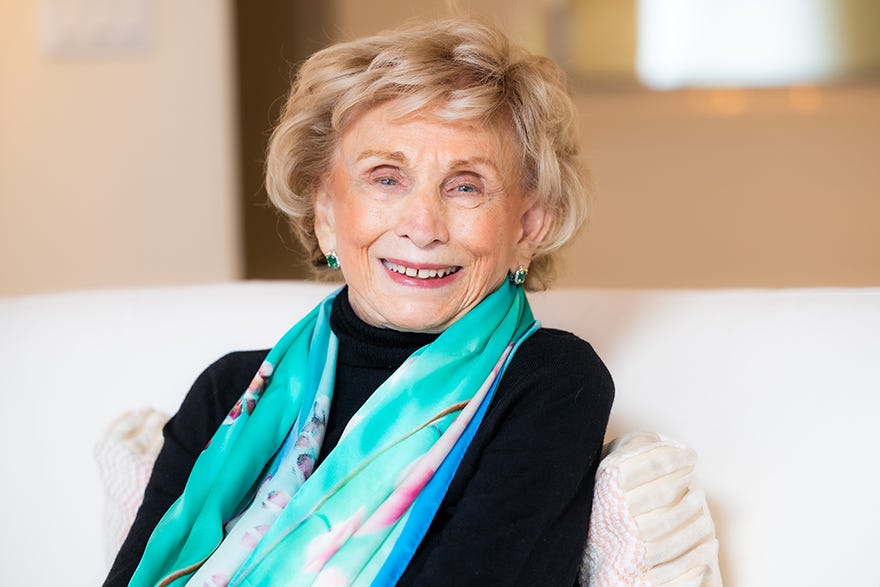
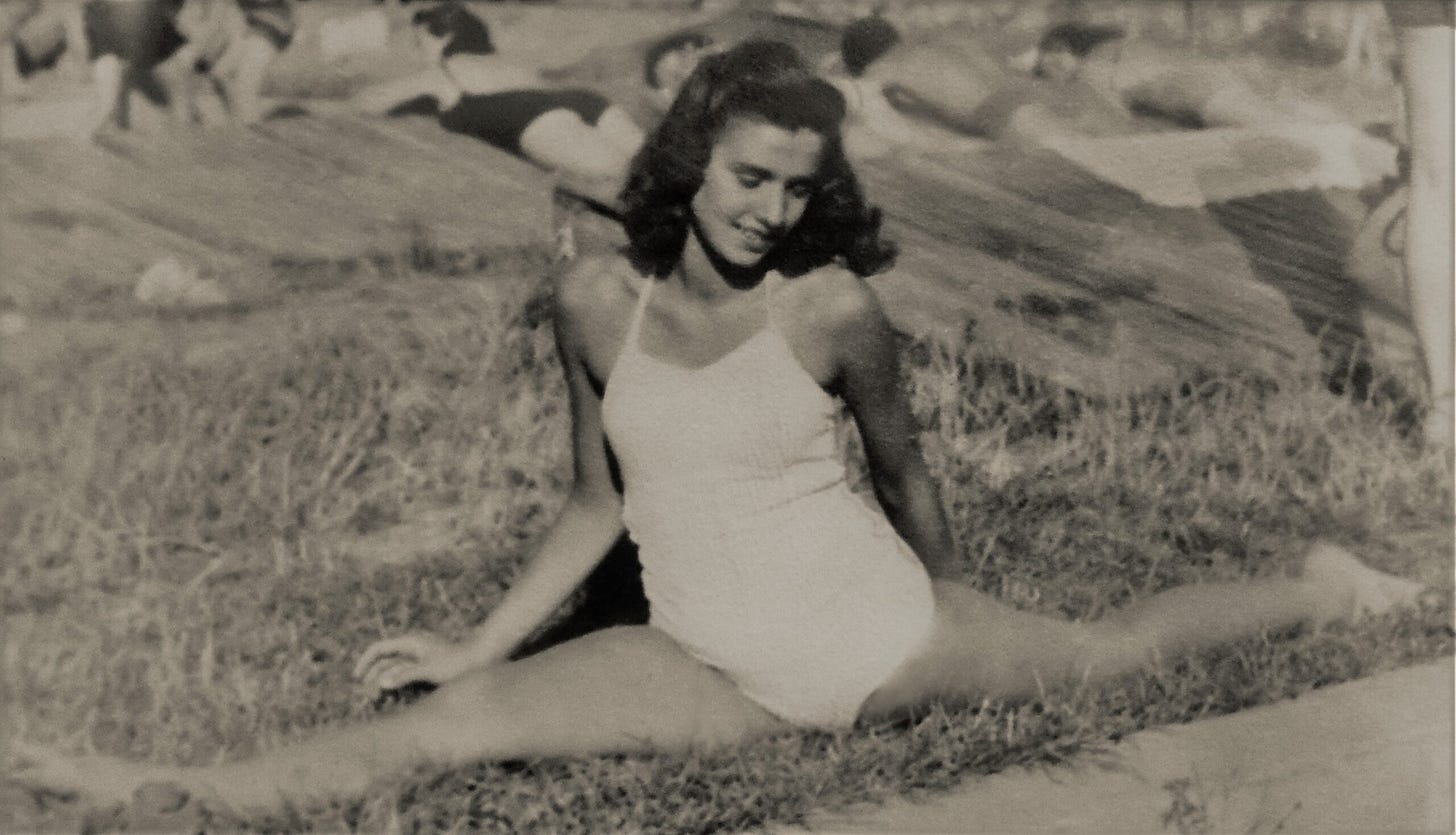
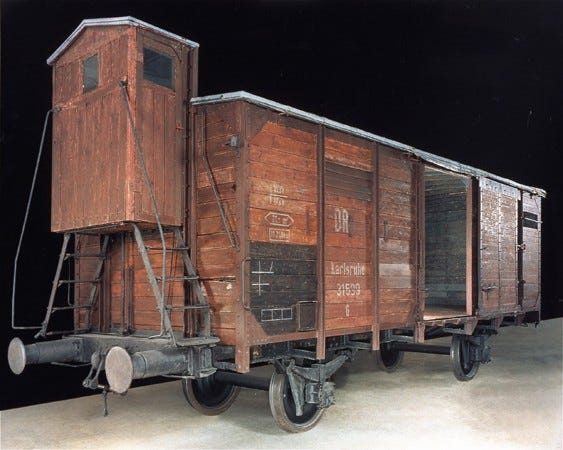
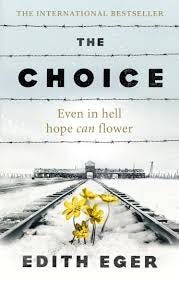
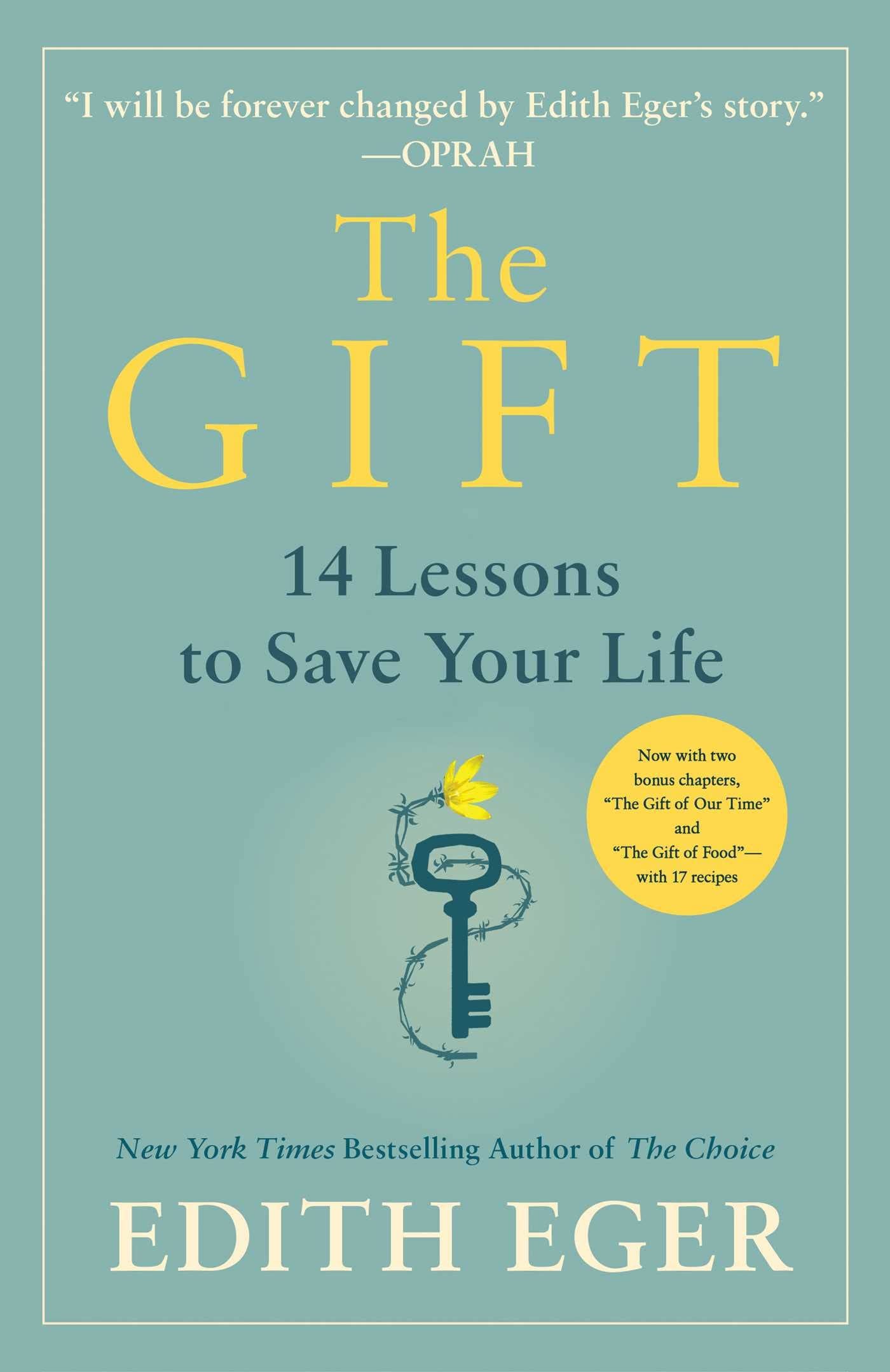
Beautifully written Andres, and such an inspiring story of how perspective and perseverance are so key in how we experience our lives. Can’t wait for the rest! 👏🏻